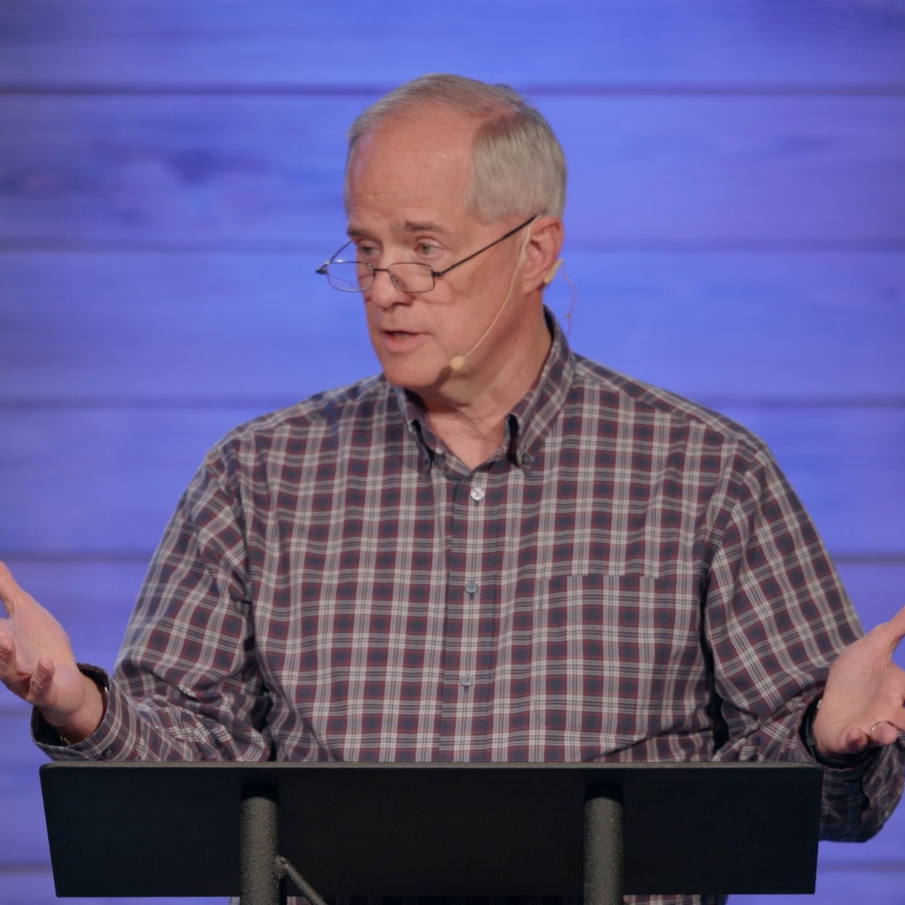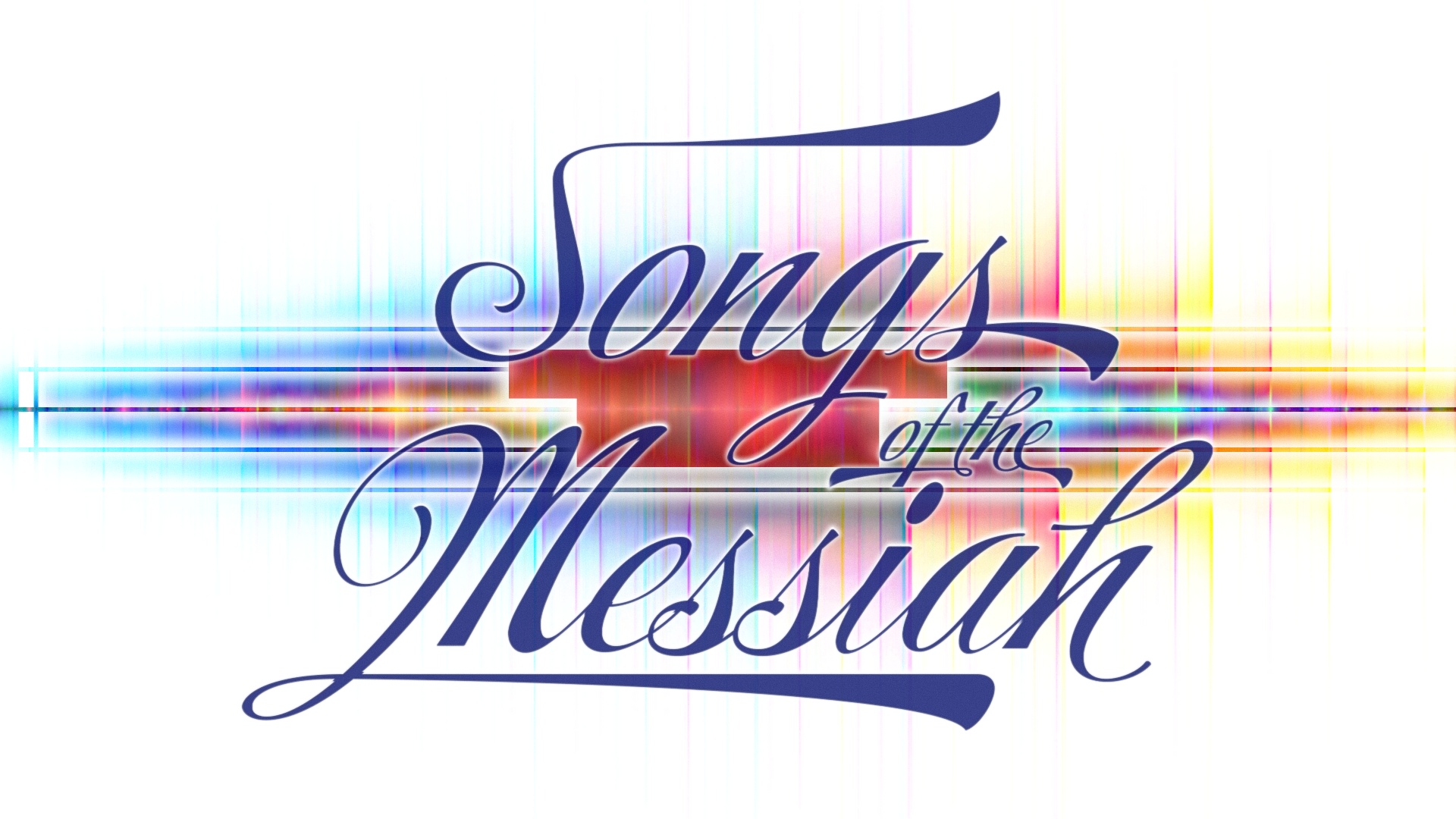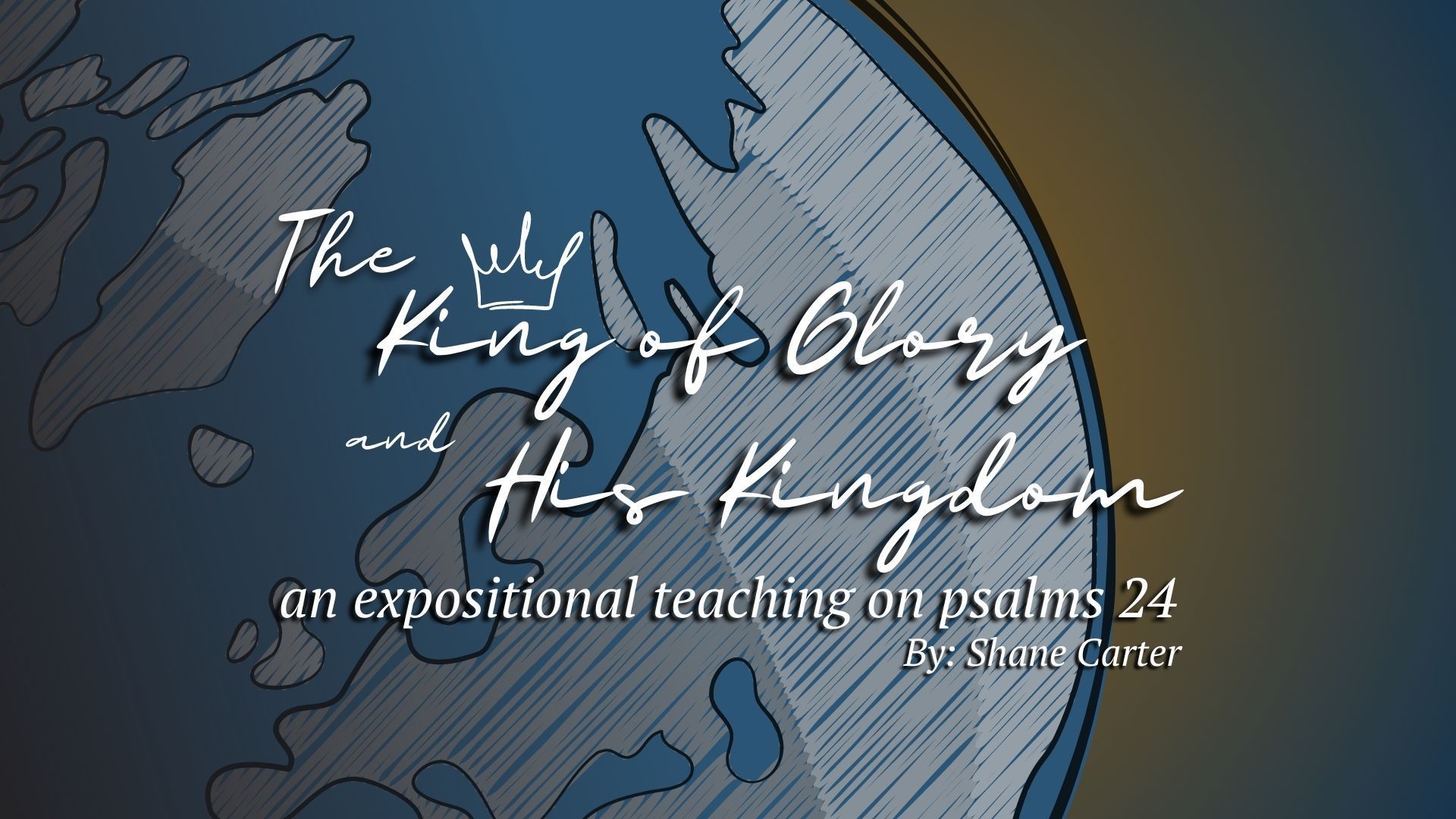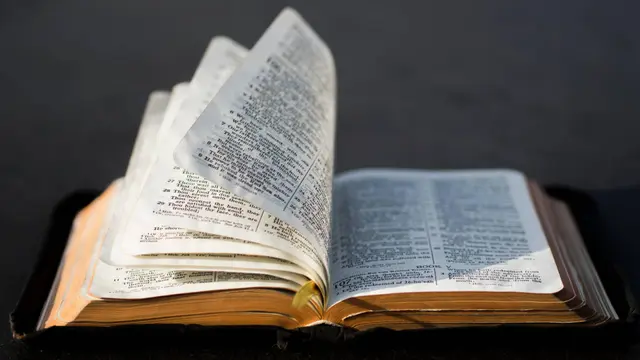MANUSCRIPT
Welcome back to our spring midweek series, “Songs of the Messiah”...so far we’ve covered Psalms 8, 16, 22, 34, 40, and 45...we complete our series tonight with Psalm 118...
In John 12.21, let’s recall John’s record of our theme verse...20 Now among those who went up to worship at the feast were some Greeks. 21 So these came to Philip, who was from Bethsaida in Galilee, and asked him, “Sir, we wish to see Jesus.”
That’s our mission...to introduce people to Jesus...and we’re learning how to do that in the book of Psalms. As I said, we’ll cover some background material each week...tonight, as we close out this series, I wanted to share a quote from John Calvin about the value of the Psalms, specifically as they relate to Christ...I hope it will encourage you to continue this study of the Psalms...
Although the Psalms are replete with all the precepts which sere to frame our life to every part of holiness, piety, and righteousness, yet they will principally teach and train us to bear the cross; and the bearing of the cross is a genuine proof of our obedience, since by doing this, we renounce the guidance of our own affections, and submit ourselves entirely to God, leaving Him to govern us to dispose of our life according to His will, so that the afflictions which are the bitterest and most severe to our nature become sweet to use because they proceed from Him. In one word, not only will we find (in the Psalms) general commendations of the goodness of God which may teach people to repose themselves in Him alone, but we will also find that the free remission of sins, which alone reconciles God toward us and procures for us settled peach with Him, is so set forth and magnified, as that here there is nothing wanting which relates to the knowledge of eternal salvation. (Preface to the Commentary on the Psalms by John Calvin, quoted in Deeper by Dane Ortlund, pp 155-156)
Let’s set the stage for our study of Psalm 118...this psalm is the messianic half of a messiah/Torah pair of psalms, with its Torah partner being the longest psalm in the book, Psalm 119...it’s found between the shortest psalm (117) and the longest (119)
Before we dive deep into the text, let’s look at an overview of the psalm...given it’s messianic nature, it helps to understand the flow of the psalm first...this is a thanksgiving psalm, as you would think from the first verse...but while some of the messianic psalms we’ve looked at were considered messianic because of a single element within the psalm – like Psalm 34...others are messianic because the entire psalm is understood to be a prayer of Christ or related to Jesus as Messiah...Psalm 22 is like that, and Psalm 118 is, too...
So from 30,000 feet, Psalm 118 is a psalm of thanksgiving spoken mainly by a single speaker, a righteous one, the messianic King of Yahweh’s kingdom...He comes leading the righteous into the courts of the Temple to thank the Lord for His salvation and to establish the Torah (Ps 119)...the voice shifts from the singular to plural and back throughout the psalm...it culminates with a thanksgiving offering and a final call to give thanks to God...as we study this psalm, think and pray through its nature...prayer of Messiah, deliverance narrative, foreshadowing of Messiah’s passion in the very same city, Jerusalem...keep all of that in mind as we examine this text...and remember that, as with all the psalms, there is a blend of the human and the divine in the way it is written...
Psalm 118 is also the final psalm of a group called the Egyptian Hallel, or simply the Hallel psalms, comprised of Psalms 113 through 118...they relate to Yahweh’s deliverance of His people from Egypt in the exodus, and were traditionally sung as a group in the Passover celebration...there is a strong case to be made that at the last supper with Jesus and His disciples, when Mark 14.26 says And when they had sung a hymn, they went out to the Mount of Olives that it was this psalm that they sang, the final psalm of the Hallel...
But most importantly, Psalm 118 is the most frequently cited psalm in the NT...
The author of Hebrews quotes Psalm 118.6 in Hebrews 13.6, to demonstrate how the invincibility of Jesus is communicated to us as we are united to Him...Paul alludes to the verse in Romans 8.31 as well...
Jesus quotes Psalm 118.22-23, the “cornerstone” passage, in the parable of the tenants in the synoptic gospels (Matthew 21.42, Mark 12.10-11, and Luke 20.17) as He challenged the Jewish religious leaders for their rejection of Messiah, comparing it to the rejection of the cornerstone; they well understood His meaning and that rebuke further motivated them to kill Him...
Psalm 118.22, the ”cornerstone” passage, is also quoted by Luke in Acts 4.11, by Paul in Romans 9.32 and Ephesians 2.20, and by Peter in an extended passage in I Peter 2.4-8...
Psalm 118.26 is quoted in all four gospels (Matthew 21.9, Mark 11.9-10, Luke 19.38, and John 12.13) by the people of Jerusalem at the triumphal entry of Jesus...
Psalm 118.26 is also repeated by the children of Jerusalem in the temple courts in Matthew 21.15...
Psalm 118.26 is referenced by Jesus Himself in Matthew 23.39 and Luke 13.34 at the end of the woes pronounced upon the Jewish religious leaders...He uses the verse to refer to His second coming, and ironically, give hope for Israel’s eventual restoration:
Matthew 23.37-39 37 “O Jerusalem, Jerusalem, the city that kills the prophets and stones those who are sent to it! How often would I have gathered your children together as a hen gathers her brood under her wings, and you were not willing! 38 See, your house is left to you desolate. 39 For I tell you, you will not see me again, until you say, ‘Blessed is he who comes in the name of the Lord.’”
This unmatched number of NT references from a psalm, all related directly to Jesus or spoken by Jesus Himself, conclusively proves the messianic nature of this psalm...
Let’s jump into the text!
Opening Call to Thanksgiving (118.1-4)
The psalm begins a great example of an inclusio, a repeated verse or phrase that brackets a longer passage of text...verse 1 is the first half...we’ll see the last half in verse 29…
1 Oh give thanks to the Lord, for he is good;
for his steadfast love endures forever!
This verse is a standard call to thanksgiving within the OT, and is also used verbatim in I Chronicles 16.34, Psalm 106.1, 107.1, and 136.1…
2 Let Israel say,
“His steadfast love endures forever.”
3 Let the house of Aaron say,
“His steadfast love endures forever.”
4 Let those who fear the Lord say,
“His steadfast love endures forever.”
Verses 2 through 4 are also used verbatim in Psalm 115.9-11...they represent three groups that the psalmist calls to testify to the ‘he-sed’ of God, the covenant love of Yahweh...first, the call is made to the entire nation, all of Israel...then the house of Aaron, including the priests and the Levites are called...finally, the call goes out to the worshippers in the Temple...those who fear the Lord are to witness to God’s faithful love...
This call to praise was likely voiced by a priest calling for the corporate worship and the procession to the temple to begin...the repetition is a feature of this psalm, and others as well...but it is an effective way to remember the importance of declaring the greatness of God’s covenant love...
Praise for Deliverance 118.5-19
Now the psalm turns to the voice of the single speaker, the Righteous One...try to listen to this as if it is the voice of Jesus…
5 Out of my distress I called on the Lord;
the Lord answered me and set me free.
6 The Lord is on my side; I will not fear.
What can man do to me?
7 The Lord is on my side as my helper;
I shall look in triumph on those who hate me.
8 It is better to take refuge in the Lord
than to trust in man.
9 It is better to take refuge in the Lord
than to trust in princes.
10 All nations surrounded me;
in the name of the Lord I cut them off!
11 They surrounded me, surrounded me on every side;
in the name of the Lord I cut them off!
12 They surrounded me like bees;
they went out like a fire among thorns;
in the name of the Lord I cut them off!
13 I was pushed hard, so that I was falling,
but the Lord helped me.
14 The Lord is my strength and my song;
he has become my salvation.
15 Glad songs of salvation
are in the tents of the righteous:
“The right hand of the Lord does valiantly,
16 the right hand of the Lord exalts,
the right hand of the Lord does valiantly!”
17 I shall not die, but I shall live,
and recount the deeds of the Lord.
18 The Lord has disciplined me severely,
but he has not given me over to death.
The point of this passage is that the Righteous One, the psalmist, has endured and survived a distressing and dangerous circumstance in his life, and he has been delivered through it by Yahweh...based on the text, he was confronted and attacked by adversaries, and through God’s intervention not only survived the threat, but emerged completely victorious...let’s look carefully at the deliverance account...
The psalmist praises Yahweh for His faithfulness and power, declaring that the strength of Yahweh is more than a match for any adversary...
6 The Lord is on my side; I will not fear.
What can man do to me?
7 The Lord is on my side as my helper;
I shall look in triumph on those who hate me.
If we understand these words as the words of Jesus, we gain new insight into His mindset as He endured the opposition of the Jewish religious leaders, even to the point of the cross...even while facing death, His confidence was in the LORD, and He knew that He would triumph through God’s sovereign dominion...remember that verse 6 is quoted in Hebrews 13.6 in the context of the closing admonitions of the book where the author quotes many OT verses that say God will never leave or forsake us...Hebrews follows that thought with Psalm 118.6... Hebrews 13.6
6 So we can confidently say,
“The Lord is my helper;
I will not fear;
what can man do to me?”
Verses 8 and 9 are likely in the plural voice...it is absolutely true that God, not man, is where you want to place your trust…
8 It is better to take refuge in the Lord
than to trust in man.
9 It is better to take refuge in the Lord
than to trust in princes.
In the context of the deliverance narrative, the psalmist describes the nature of the opposition…
10 All nations surrounded me;
in the name of the Lord I cut them off!
11 They surrounded me, surrounded me on every side;
in the name of the Lord I cut them off!
12 They surrounded me like bees;
they went out like a fire among thorns;
in the name of the Lord I cut them off!
13 I was pushed hard, so that I was falling,
but the Lord helped me.
This is a summary of the sort of conflict Jesus faced from the Pharisees...Jesus didn’t physically defend Himself from the attacks of the Jewish religious leaders...in fact, He didn’t even argue against the false claims both the Sanhedrin and the bought witnesses made about Him, in fulfillment of Isaiah 53.7...
He was oppressed, and he was afflicted,
yet he opened not his mouth;
like a lamb that is led to the slaughter,
and like a sheep that before its shearers is silent,
so he opened not his mouth.
But this description in Psalm 118 does give us a sense of what the attacks were like...it has the feeling of Psalm 22.12-13, 16...as the enemies of Jesus surrounded Him at Calvary.
12 Many bulls encompass me;
strong bulls of Bashan surround me;
13 they open wide their mouths at me,
like a ravening and roaring lion.
16 For dogs encompass me;
a company of evildoers encircles me;
Here in Psalm 118, the opponents again surround the Righteous One like bees, and burning like a fire of thorns...if you’ve been surrounded by bees, it can be a battle...but as before, the psalmist thanks God for His help in the fight as he declares that the Lord is His strength and His song, and has become His salvation, or His deliverer…
Verses 14 through 16 remind us of the exodus experience with the reference to glad songs in the tents of the righteous...
verse 14 is a quote of Exodus 15.2 from the Song of Moses...
1 Then Moses and the people of Israel sang this song to the Lord, saying,
“I will sing to the Lord, for he has triumphed gloriously;
the horse and his rider he has thrown into the sea.
2 The Lord is my strength and my song,
and he has become my salvation;
Verses 17 and 18 complete the deliverance narrative as the psalmist confidently declares that, because of the LORD, he will live and not die...God has used the discipline of adversity not to correct sinful behavior but to affirm godly character...Messiah will rise from His short stay in the grave...this takes us back to a previous messianic psalm, Psalm 16.9-10...
9 Therefore my heart is glad, and my whole being rejoices;
my flesh also dwells secure.
10 For you will not abandon my soul to Sheol,
or let your holy one see corruption.
Praise for the Deliverer 118.19-28
Now the focus changes...the psalmist is still speaking and has now reached the gates of the temple...His praise has moved from His deliverance to His Deliverer…
19 Open to me the gates of righteousness,
that I may enter through them
and give thanks to the Lord.
20 This is the gate of the Lord;
the righteous shall enter through it.
21 I thank you that you have answered me
and have become my salvation.
The leader of the procession calls to the priests to open the gates that he may enter in...reminiscent of Psalm 24.7...
7 Lift up your heads, O gates!
And be lifted up, O ancient doors,
that the King of glory may come in.
The victorious Messiah enters the temple courts, and the voice turns to plural as the worshippers we saw in verses 2 through 4 – Israel, the house of Aaron, and those who fear the Lord – welcome Him in, and declare Him to be the Cornerstone, literally the “head of the corner”...
22 The stone that the builders rejected
has become the cornerstone.
23 This is the Lord's doing;
it is marvelous in our eyes.
Here in Psalm 118, we find a clear reference to a messianic prophecy found in Isaiah 28.16…
“Behold, I am the one who has laid as a foundation in Zion,
a stone, a tested stone,
a precious cornerstone, of a sure foundation:
‘Whoever believes will not be in haste.’
This refers to the Righteous One, and as we saw earlier, the NT writers clearly saw this verse from Psalm 118 as referring to Jesus, with references in seven different passages, including a self-reference from the lips of Christ Himself...the point here is the distinction between the judgment of the Jewish religious leaders and the Lord...the Person and Work of the Messiah was God’s doing...those who are His, the worshippers in the Temple, proclaim Messiah as marvelous, blessing His Name...for them, He is the Cornerstone...but those who are not His, the Pharisees and the scribes and those who followed them, rejected Jesus and His messianic ministry and would prove to be the ones of whom Jesus spoke in Matthew 21.43-44…
43 Therefore I tell you, the kingdom of God will be taken away from you and given to a people producing its fruits. 44 And the one who falls on this stone will be broken to pieces; and when it falls on anyone, it will crush him.” For them, He was a rock that would crush and break them to pieces…
To those who love the Lord, He is a gracious King...to those who reject Him, He is a fierce Warrior...as we learned in Psalm 45, it’s best not to find yourself opposing God...
The worshipers shout in praise as the King enters through the gates…
24 This is the day that the Lord has made;
let us rejoice and be glad in it.
25 Save us, we pray, O Lord!
O Lord, we pray, give us success!
The verse that has appeared on Lord knows how many Christian greeting cards, verse 24, is actually praising the day the victorious Messiah enters into the Temple of the Lord...it might apply to us, but the actual context isn’t just any day or even every day, it’s a special day, the day of the return of the King to Mount Zion! And still they seek God’s blessing for the nation as they call on Him in prayer for salvation. And the response of the assembled worshippers turns to cheers as they cry,
26 Blessed is he who comes in the name of the Lord!
We bless you from the house of the Lord.
This phrase was originally spoken in this context, but it is heavily quoted in the gospel accounts, particularly in the final week of Jesus’ earthly ministry...all four evangelists attribute this shout to the crowds witnessing Jesus’ entry into Jerusalem, and Matthew notes the children even pick up the refrain...and Jesus links it to His eventual return back to Jerusalem…
This final statement from the assembly has just one focal point: the conquering King as He leads a throng through the gates and into the temple courts...and in response to his arrival, the people praise the Lord and prepare a thanksgiving offering, leading the bound sacrifice up to the altar…
27 The Lord is God,
and he has made his light to shine upon us.
Bind the festal sacrifice with cords,
up to the horns of the altar!
Now the shouts of the worshippers give way to the individual prayer of the Righteous One, the Messiah…
28 You are my God, and I will give thanks to you;
you are my God; I will extol you.
These final words from the worshiping King are personal, spoken not for or to the crowd, but quietly and reverently, to Yahweh God, as He pledges Himself to His God in the most definitive way He can...both thanking God for His goodness and intervention, and extolling the beauty and majesty of His divine character…
And the psalm ends exactly as it began, with the closing words a repeat of the opening words, completing the inclusio and praising God for His goodness and steadfast covenant love…
29 Oh give thanks to the Lord, for he is good;
for his steadfast love endures forever!
Application
What do we learn about Jesus from this psalm?
Jesus, along with His Father and the Holy Spirit, is good – and His steadfast love endures forever! Sounds like something we all already know, but I wonder how many of us would admit that we sometimes slip back into thinking that, sure, we’re saved by grace, but we’re sanctified by our works, and I bet God isn’t that happy with our works...I want to assure you that God’s steadfast love toward you isn’t dependent on your performance – it endures forever no matter what we do or don’t do...believers of all times and places must learn that God’s love never changes!
Note verse 6...if Jesus is on your side, you don’t need to fear anyone...what could mere humans do to you? Don’t fear those who can only kill the body and cannot kill the soul...trust in Jesus Christ...your future is secure in Him!
Jesus is our Cornerstone...He is the rock-solid foundation of not just your life, but of the church of all the ages... Colossians 1.16-18 is so true: 16 For by him all things were created, in heaven and on earth, visible and invisible, whether thrones or dominions or rulers or authorities—all things were created through him and for him. 17 And he is before all things, and in him all things hold together. 18 And he is the head of the body, the church. You can rely on your Cornerstone!
Always remember to give thanks to the Lord, for He is worthy of your most heartfelt thanks and praise... memorize Psalm 100.4 as a reminder... Enter his gates with thanksgiving, and his courts with praise! Give thanks to him; bless his name!
Thank you for your faithful participation in this series...I hope and pray it’s been a blessing to your soul and a help to your growth in Christ.

Taught by Mike Morris
Associate Pastor of Verse By Verse Fellowship






